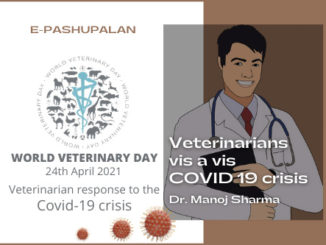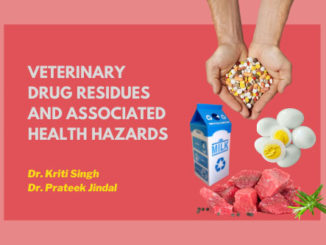The most dreaded word of this era ‘PANDEMIC’ originates from the Greek word “pan” which means ‘all’ and “demos” which means ‘people or population’. According to W.H.O. “Pandemic is the worldwide spread of a new disease”. Innumerable pathogens have pounced upon human civilization since time immemorial and have caused massive loss of lives. But in the end, humanity has got over all the odds and triumphed. To begin with, the 1918 Spanish flu, one of the worst pandemics in the human history, 1981 HIV AIDS pandemic and 2009 influenza virus H1N1 pandemic, all have proved deadly for human race. Similarly, quite recently, whole world was left in chaos, when the Novel coronavirus pandemic hit the human civilization in 2020, despite remarkable health services available to the mankind. W.H.O. declared Novel coronavirus a global pandemic on 11th March 2020, contaminating the whole globe. Tedros Adhnom, chief of World Health Organization warned that the Novel coronavirus was found to be ten times deadlier than the flu virus. The roots of this virus have been found to emanate from animal markets of Wuhan China, depicting its zoonotic origin as mentioned in the Covid-19 situation report 94 by W.H.O. The case fatality rate was recorded about 20% as on January 2020 in China, when the spread of the infection just began. The virus has proved itself to be very noxious over the time, infecting over 130 million world population and not leaving any country of the globe untouched. There have been about 2.89 million deaths by this atrocious virus as per data provided by Wikipedia, The New York Times and JHU,CSSE Covid-19 data, dated 08/04/2021.
This global pandemic has already pushed us all a year back and is still continuing to rampage all over. But recently we have seen the virulence of disease has started to pacify and there has been a significant drop in the fatality rates. Undoubtedly, human medicine professionals have played a crucial role in combating the pandemic but we should also acknowledge the efforts of other professionals that have been working with equal determination and perseverance to neutralize the threat. Out of these various professionals, Veterinarians have emerged as one of the strongest pillars that have contributed to control this zoonotic infection and harbored us against this deadly virus.
This is an epoch of “One Health Program” which is promulgating all across the globe. According to One Health Initiative Task Force (OHITF), One Health is “the collaborative efforts of multiple disciplines working locally, nationally, and globally, to attain optimal health for people, animals and our environment”. According to W.H.O. , the areas of work in which a One Health approach is particularly relevant includes food safety, the control of zoonoses (diseases that can spread between animals and humans, such as flu, rabies and Rift Valley Fever), and combating antibiotic resistance.
Basically, Coronaviruses are a group of RNA virus that have been causing diseases in mammals as well as in birds since past few decades. Structurally, this is an enveloped, single stranded RNA virus with positive sense. These viruses usually cause diseases of respiratory and intestinal tract. The coronavirus cases have been prevalent in felines (cat family), equines (horse family) , Canines (dog family) and bats. It has been found out that Bats and many other animals act as natural reservoir for the Corona Virus. International committee on taxonomy of viruses (ICTV) announced “Severe acute respiratory syndrome coronavirus 2 (SARS CoV 2)” as the name of new virus, on 11 Feb, 2020 which has transmogrified from the previous strain and has proved cataclysmic upon humankind . Before this, SARS CoV and MERS CoV were seen affecting globe and had a zoonotic origin. This is the third time we see Coronaviruses traversing the species barrier and impending disaster upon mankind and so the role of Veterinarians has already become very crucial.
When we talk about Veterinary healthcare professionals, it’s not always about the Veterinary clinicians, but there is a comprehensive side to the subject. Veterinarians in research labs have been diligently working day and night to find remedy for the problem. Veterinarians working as microbiologist have been studying the virus, their strains and trying to counter it. Veterinary laboratories have also used their experience and expertise in testing out animals as well as human samples supporting the diagnostic capacity of human health services.
As per the data provided by COVID Tracking Project, a collaborative voluntary organisation, U.S. had conducted only 27,157 tests as of March 12, 2020. Many public health labs lacked the technology to perform high-throughput nucleic acid extraction. After engagement of, veterinary diagnostic test centers to help, it was estimated that the COVID-19 testing figures had increased to 2.8 million by April 12, and to 7 million by May 3, 2020. For instance in India, I.V.R.I (Indian Veterinary Research Institute), Bareilly and DUVASU( Uttar Pradesh Pandit Deen Dayal Upadhyaya Pashu Chikitsa Vigyan Vishwavidyalaya Evam Go Anusandhan Sansthan), Mathura are among the few Veterinary institutes where Covid 19 testing lab was set up to subside the testing load on nearby human medicine testing facilities. Veterinarians as Environmental health officers and Public health specialists have been constantly active and monitoring the outbreak, controlling its spread, spreading awareness and preventing the havoc. Since animals are a part of life cycle of zoonosis, Veterinarians hold the sword to eliminate these pathogens as soon as they are seen in animals. There has been alliance between veterinary public health departments, epidemiologists, human medicine institutes and various public institutions for development of strategies and programs to counter the current Covid situation.
Veterinarians have also been lending their machines, for instance Veterinary School, Tufts University lent ventilators to a hospital in Boston, four PCR machines were lent to hospitals of Kerala, to overcome the deficiency of these resources. There has been ongoing researches and development of scientific opinions on COVID-19 effects on animals as well as public health. Researchers at Cornell University, College of veterinary science which earlier did Research on MERS CoV are now trying to determine SARS CoV 2 spike proteins and its mechanisms for fusing with host cells. Also, investigators at University of California, Davis, School of veterinary medicine have used an antiviral drug that stops virus replication in monkeys and mice. Veterinarians have a pivotal role in development of COVID-19 vaccines since the coronavirus has been very discernible in feline and bovine pathology, giving them expedite in research. Under WHO’s coordination, a group of experts with diverse backgrounds are working towards the development of vaccines against COVID-19. The Pfizer-BioNTech alliance under the leadership of Dr. Albert Borula , CEO of Pfizer, a Greek Veterinarian, developed the Covid 19 vaccine, showing over 90% effectiveness in clinical trials. Researchers and Veterinarians working at vaccine manufacturers like Bharat BioTech (COVAXIN- Indian vaccine), have been conducting animal trials of the vaccine to glean information about its immune response and toxicity before releasing the vaccine for human clinical trials. Researchers at Yerkes National primate Research center, developed an MVA (Modified Vaccinia Ankara) based vaccine, which induces killer CD8 T-cells and produces antibodies in mice. Also, Indian veterinary Research Institute, Bareilly and Indian Institute of Technology (IIT), Rorkee have collaborated to find out anti viral drug against SARS CoV 2 to be used in pets and wild animals under special drive, IRHPA (Intensification of Research in High Priority Areas).
In many states, around the globe veterinarians and dentists have been authorized to deliver the COVID-19 vaccine to the people. In this time of crisis, veterinarians are also working as food security officers in meat and poultry industries, preventing food borne zoonoses. Since 89% of the world population relies on animal proteins and animal products for their nourishment, veterinarians at this time of crisis have excelled to maintain the Global food supply and ensured that it remains contamination free. Veterinarians in various Governmental Organizations (Remount Veterinary Corps of Indian Army) have successfully trained dogs and used their olfactory capabilities to detect the COVID-19 suspect among the mob. These animals are so competent that they can test out the sweat and urine samples and give the results, thus helping to reduce the load on diagnostic facilities.
Not to undermine the efforts of veterinary clinicians who have worked too hard to look after clients and their pets and made sure they did just fine. There was a time of confusion and fatigue among people when people thought that their pets could get infected by the SARS CoV2 and spread the infection to their families. There had been some cases of Tigers in New York zoo, some cats and dog in Hong Kong , getting infected with coronavirus. Further, no significant evidence has been found that animals act as the COVID-19 virus carrier. Veterinary clinicians have played an crucial role in instructing their clients and guiding them with right steps so as the client and their pet remain safe. Further, Veterinarians need to follow the complete guidelines released by the government and need to communicate them among general public so as to prevent contamination. Practicing veterinary clinicians need to keep their veterinary teams healthy and support the staff morally and emotionally and maintain their confidence. Veterinarians should promote telemedicine and try to attend their clients via digital media. They should try to establish a system for delivering the drugs and pet food to their clients, avoiding contact. Due to this pandemic the routines of various pet animals have changed and they might show distressed behaviors, so veterinarians need to try to tranquilize the pets, maybe by trying out new diet combinations and and giving them a new schedule.
This pandemic has made Veterinarians emerge as one of the strongest workforce of the globe and situations like these can be surpassed with joint efforts of various professionals coming together by making the idea of “One Health” reach its pinnacle.






Congratulations beta… a very well written article.. 👏